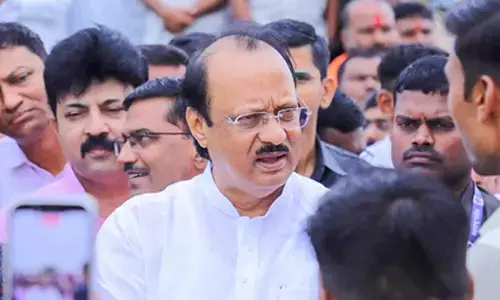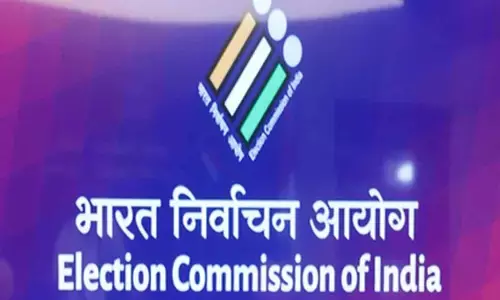A vision for centre of excellence studies in Classical Telugu

A vision for centre of excellence studies in Classical Telugu
The Central government declared Telugu as a classical language in 2008
The Central government declared Telugu as a classical language in 2008. The Telugu people of Andhra Pradesh and the Telugu diaspora felt happy as it was an honour to the Telugu people all over the world. Moreover, the GOI earmarked a grant of Rs 100 crore in 2010 for this purpose. It also organised a survey in all the districts of the undivided Andhra Pradesh between 2010 and 2012 for ascertaining a suitable location for establishing a Telugu Language Classical Centre.
The government also constituted a committee for this purpose in 2012, which comprised Joint Secretary, MHRD, CIIL Director, Principal Secretary of Education, Government of AP, Secretary, Central Sahitya Akademi, New Delhi, Director, Telugu Akademi, and Director, AP Cultural Department. The committee met three times and took suggestions of Telugu writers, scholars, editors of Telugu newspapers and several Telugu organisations for the location of a suitable venue for the same purpose. It decided unanimously in favour of establishing the Telugu Classical Language centre temporarily at the existing government cultural building at Madhapur near Hyderabad.
The bifurcation of Andhra Pradesh state in 2014 delayed the process of establishing the Telugu Classical Language Centre. Consequently, the Centre continued to be part of the CIIL in Mysore for a long time, and as such it was away from the Telugu people. Meanwhile, in January 2020, the said Centre was shifted to Nellore in Andhra Pradesh as per the wish of a VIP in the Central government. Nellore is not a suitable place for either of the Telugu states. As such, it is not in the interests of Telugu people, scholars and researchers for the development of a Classical Telugu Language Centre. Hence, I propose that the Telugu Classical Language Centre be shifted to a place in or around Hyderabad in order to make it accessible to all the Telugu people.
We are aware of the activities of the CESCT (Centre of Excellence Studies in Classical Telugu) as per the guidelines of the CIIL (Central Institute of Indian Languages) at present. The government should come forward to appoint chairperson to oversee the entire language development process which is highlighted as a key task in the New Education Policy (NEP).
I propose to present my views regarding the establishment of CESCT at a place in the Telugu States by the Central government for its development. These views are based on my association with the State Institute of Telugu Akademi and Telugu University and the experiences gained by me in the process of the development of the same.
Immediate Action Needed
Immediate steps to be taken up to set up a Telugu Classical Language Centre in the two Telugu states are as follows:
1. First of all, the Central government education department should arrange a meeting with the officials of the two Telugu States regarding the establishment of this Centre
2. An advisory council or governing body should be set up. Retired eminent scholars and popular writers should be selected and appointed to this Governing Body along with the officers as well as various organizations with administrative experience in the field of literature.
3. CIIL has not had a regular director for the past six years. A renowned literary figure and a retired professor with experience in the field of administration with not more than 70 years should be appointed as the Chairman of the Institute instead of Director.
4. As the Central government has already declared this Telugu Classical Language Centre as a Centre of Excellence, this Centre also shall be declared an autonomous institution just like ICHR and CIFEL.
5. Proficiency, mastery, and holistic vision with broader perspective view in linguistic literature are most prevalent among the elderly skilled persons. So, the staff working in this organisation should be looked after without any restrictions on the age limit.
6. When the Telugu Classical Language Centre was announced, the Andhra Pradesh State was undivided. But in 2014, the state of Andhra Pradesh Re organised into two states, Andhra Pradesh and Telangana. For this reason, the funds provided by the Central government to this institution are sanctioned to the both two States in the ratio of 58:42 as per the State Reorganization Act, then only there will be no possibility of any dispute. Accordingly, a Centre for Telangana shall be established in Hyderabad. Andhra Pradesh will have to set up another centre.
Future Plan of the Centre
1. Why set up CESCT near Hyderabad
It is in the fitness of things to recollect that A.K.Singh, Joint Secretary, MHRD, organised three meetings in Hyderabad in 2012 for establishing the centre there. It was also agreed in principle that the Centre could be established in the State government cultural centre at Madhapur, Hyderabad, then. However, the then government of undivided Andhra Pradesh did not give any undertaking to the MHRD in the context of the impending bifurcation of the state. I am aware of these developments as I was a member of the proposed committee in my capacity as the Director of the Telugu Akademi then.
People of the Telugu states are aware of the prominence of Hyderabad as a centrally located place and how conducive it is for all the resource persons engaged in research in Telugu culture and language. Moreover, Hyderabad is well connected by air and trains from various places of India.
2. Name 10 chairs after Classical Telugu poets
There is an imperative need to select the great works of the classical poets for revisiting these great poets in order to look at these poets from a fresh perspective from the 10 proposed chairs. Several regional language centres in different parts of the Telugu states, which organise meetings, discussions, workshops and oriental training centres, can also enrich a Centralised location in Hyderabad for their mutual benefit. These proposed chairs can cater to the intellectual needs of the classical Telugu scholars. The proposed ten Chairs can develop ten Telugu regional Centres at various places in the Telugu states for the enrichment of Telugu language.
3. Preparation of monographs
I. Monographs on reputed Classical Telugu Poets: It is proposed to commission well known scholars to write 200 monographs in a simple language easily accessible to everyone on reputed ancient Telugu poets as the first phase in the first year, and get the same published. Such monographs need to be made available to most people at affordable prices so that such books should be part of every household. It was possible for me to publish 158 monograph of this kind in 2012 within four months during my tenure as Director, Telugu Akademi. These monographs were launched at the Telugu Conference in Tirupati then.
II. Monographs on Arts, Culture and Tradition: Reputed scholars can be commissioned to write 100 monographs on the classical Telugu poetical works on the above issues.
III. Monographs on ancient Science Books: Our researchers discovered that a number of science books had been written on various topics in Telugu several thousands of years ago. 100 Monographs need to be written on such books.
(Writer is a former Director of Telugu Akademi (Andhra Pradesh State Institute of Telugu Language) and former Vice-Chancellor (In-charge) of Telugu University, Hyderabad)
(The second and concluding part will appear in these columns on tomorrow)














